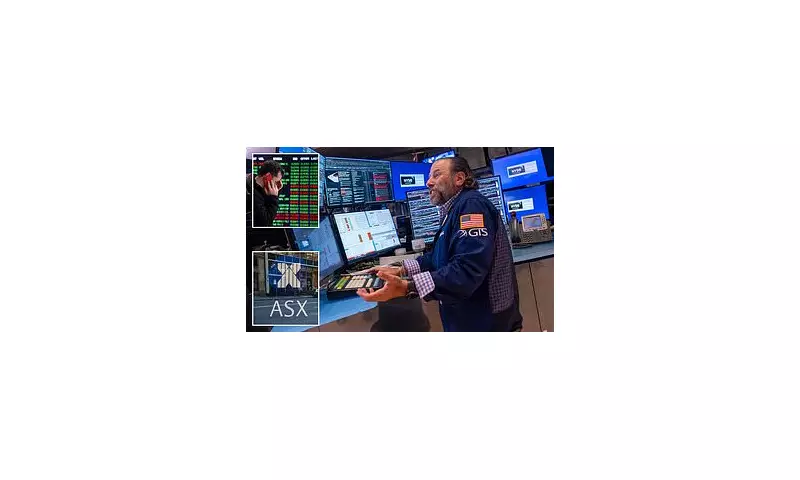
Australia's financial markets experienced a significant downturn on Thursday, sinking to their lowest levels since May as nervous investors reacted to a sharp decline on Wall Street.
Market Numbers Tell the Story
The benchmark S&P/ASX200 dropped by 103.5 points by midday, representing a 1.21 per cent fall to 8,449.2. The broader All Ordinaries index performed even worse, losing 113.9 points or 1.29 per cent to settle at 8,720.1.
This Australian slump mirrored a grim trading session in the United States, where even impressive earnings from the world's largest company failed to calm investor nerves about overvalued equity markets.
Wall Street's Dramatic Reversal
The S&P 500 initially surged by 1.9 per cent, appearing headed for its best performance since May, before completely erasing those gains and ultimately falling by 1.3 per cent.
The most severe losses occurred in sectors that had previously been market darlings. Nvidia, cryptocurrency assets and other high-flying areas that had shown nearly unstoppable momentum suddenly became the market's weakest links. Bitcoin fell below US$87,000, a significant drop from nearly US$125,000 just last month.
IG market analyst Tony Sycamore described the situation as "an ugly reversal lower for US equities overnight, erasing the relief rally that followed Nvidia earnings report yesterday morning."
AI Bubble Concerns Intensify
Market anxiety had been building throughout the week, primarily driven by two major concerns: that Nvidia and other AI-focused stocks had become overvalued, and that the Federal Reserve might delay the interest rate cuts that investors have been eagerly anticipating.
As the most valuable company in the US market, Nvidia exerts enormous influence on the S&P 500. Investors are increasingly questioning whether the massive investments flowing into AI chips and data centres will actually deliver the promised profits and productivity gains.
Although Nvidia expects to sell an additional US$65 billion worth of chips in the coming quarter - exceeding analyst expectations - doubts remain about whether these purchases will generate sufficient returns for companies like Amazon that are deploying the technology.
A recent Bank of America survey revealed that a record percentage of global fund managers believe companies are "overinvesting," identifying a potential AI bubble as the number one market risk.
Australian Sector Performance
Every major sector in the Australian market traded in negative territory by midday. Raw materials stocks led the declines with a 3.3 per cent drop as investors reassessed global growth expectations.
Iron ore giants BHP, Rio Tinto and Fortescue each fell more than two per cent, while gold stocks universally declined as the precious metal consolidated around US$4,065 per ounce.
Rare earth elements, critical minerals and copper miners suffered particularly heavy losses amid renewed fears about the sustainability of the artificial intelligence boom.
The financial sector declined 0.6 per cent, with all major banks and Macquarie Group selling off. Westpac led the banking losses with a 1.5 per cent drop.
Energy stocks fell 1.7 per cent, tracking overnight oil price declines and affecting Woodside and Santos. Coal producers Yancoal and Whitehaven each dropped more than 2.3 per cent, while uranium companies Paladin and Deep Yellow plummeted over 4.9 per cent.
Australia's technology sector decreased by 0.9 per cent, though segment leader WiseTech Global provided some stability with a 4.4 per cent gain after reassuring shareholders about strong growth prospects.
Elsewhere in technology, data centre specialist NextDC and software provider Technology One both fell more than three per cent.
The shifting market sentiment also impacted real estate stocks, which dropped 1.2 per cent in a broad-based decline.
Consumer-facing stocks proved relatively resilient, with staples and discretionary sectors slipping less than 0.5 per cent. The defensive healthcare sector posted the smallest loss at just 0.3 per cent.
The Australian dollar traded at 64.55 US cents, down from 64.79 US cents on Thursday afternoon, remaining stable after hitting three-month lows overnight.





